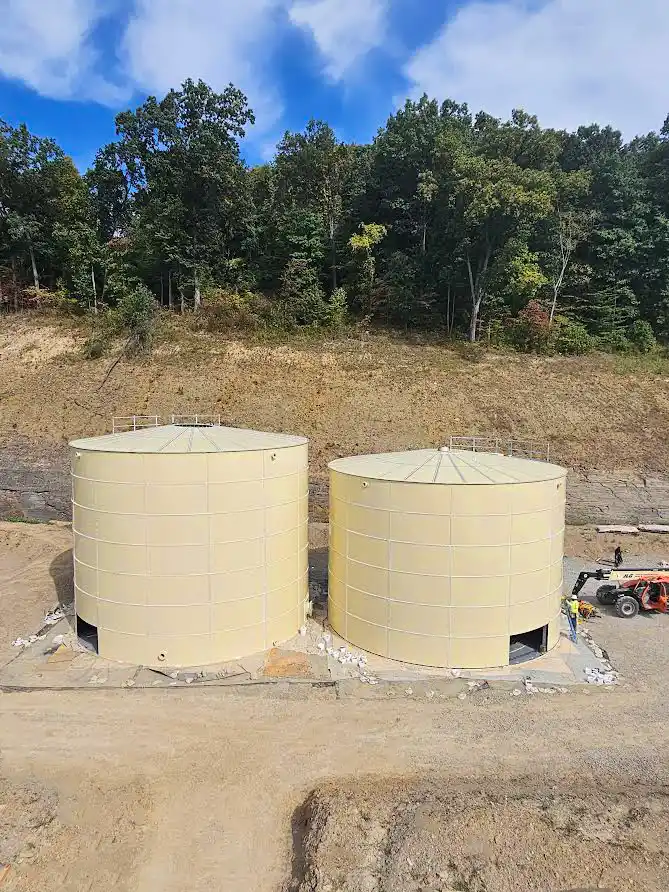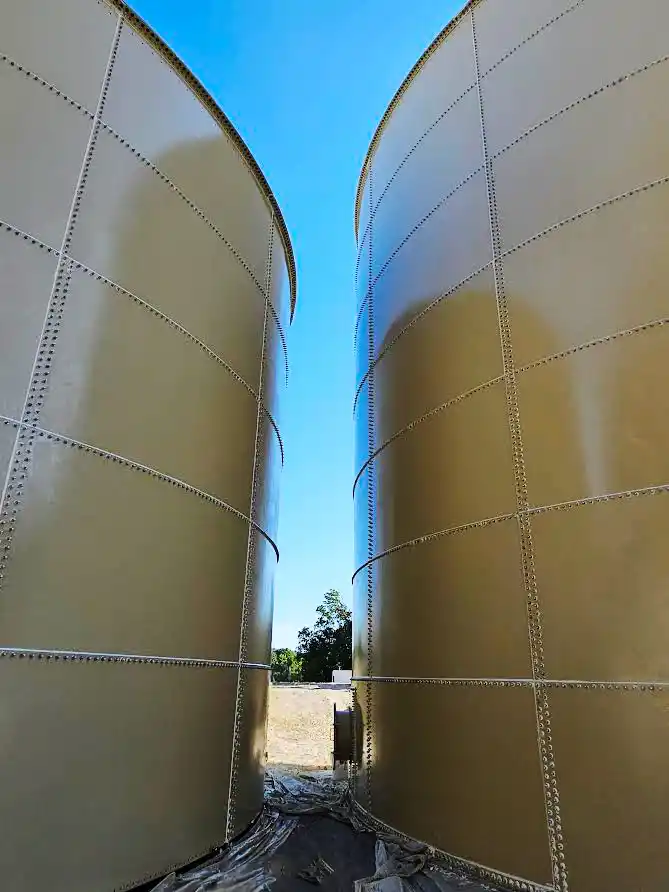The Key Differences Between Weston NanoCoat™ (WNC) and Glass-Fused-to-Steel (GFS) for Process Water Tanks
The TL;DR Summary
Weston NanoCoat (WNC) and Glass-Fused-to-Steel (GFS) are leading coatings for process water tanks, which store treated water reused in industries. While both coatings have merits, WNC boasts streamlined application, enhanced durability, lower maintenance costs, minimal environmental impact, and long-term cost-effectiveness. In contrast, traditional GFS might require more maintenance and has a different environmental footprint. The modern features of WNC make it a preferable choice for industries focusing on sustainability and efficiency.
The Importance of Coatings for Process Water Tanks
In the world of storage solutions, coatings play a pivotal role in ensuring the durability and longevity of tanks, especially those storing complex liquids like process water. Among the myriad of options, two contenders emerge as leaders: The innovative Weston NanoCoat™ (WNC) and the traditional Glass-Fused-to-Steel (GFS). Here, we delve deep into the differences between these two, particularly in the context of process water tanks.
What is a Process Water Tank?
Before we delve into the coatings, let’s first understand what a process water tank is. Essentially, process water tanks are storage solutions designed to hold water that has been used in industrial processes. This water, often referred to as ‘reclaimed’ or ‘recycled’ water, has been treated and is reused in various industrial applications, ranging from cooling systems to plant irrigation and beyond. The main function of a process water tank is to store this treated water safely and efficiently, ensuring that industries have a constant supply of reusable water, which in turn promotes sustainability and reduces costs.
WNC vs. GFS: The Coating Showdown
-
Application Efficiency: WNC boasts an innovative application method that streamlines the coating process. This is particularly beneficial for process water tanks which might require swift installation and setup. On the other hand, GFS, being a more traditional method, could take longer in terms of application and curing.
-
Durability: The WNC is renowned for its impressive resistance to corrosion, a vital feature considering the varied chemical nature of process water. GFS also offers corrosion resistance, but WNC’s formulation uses a molecular structure that gives it an major edge in terms of longevity.
-
Maintenance: One of the standout features of WNC is its reduced maintenance costs, thanks to its superior adhesion and resilience. While GFS tanks have stood the test of time, they may require more frequent checks and potential touch-ups.
-
Environmental Impact: In today’s environmentally-conscious world, the low VOC content in WNC is a significant advantage, ensuring that the coating process has minimal environmental impact. GFS doesn’t have VOC emissions but involves a high-temperature fusion process.
-
Cost-Effectiveness: Owing to its application efficiency and reduced maintenance, WNC often emerges as a more cost-effective solution in the long run. GFS might have a different initial cost structure, but over time, potential maintenance can add up.
In Conclusion
While both WNC and GFS have their own set of merits, the modern advancements incorporated in the Weston NanoCoat™ make it a compelling choice for process water tanks. By understanding the nuances of each coating, industries can make an informed decision, ensuring their process water tanks stand the test of time, function optimally, and support their sustainability goals.




